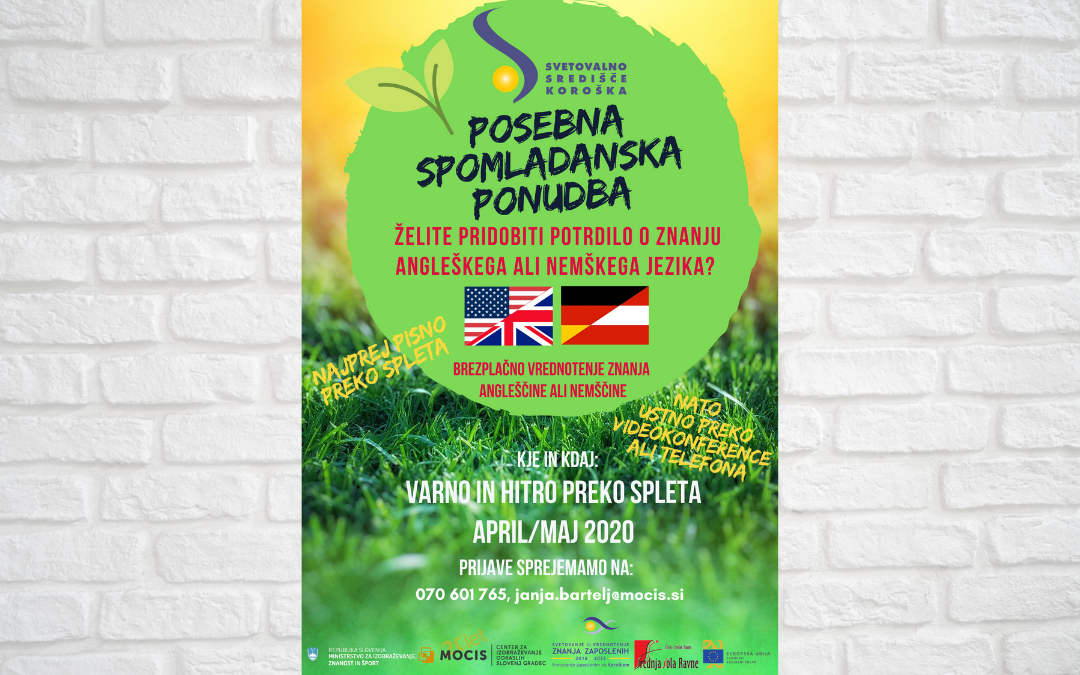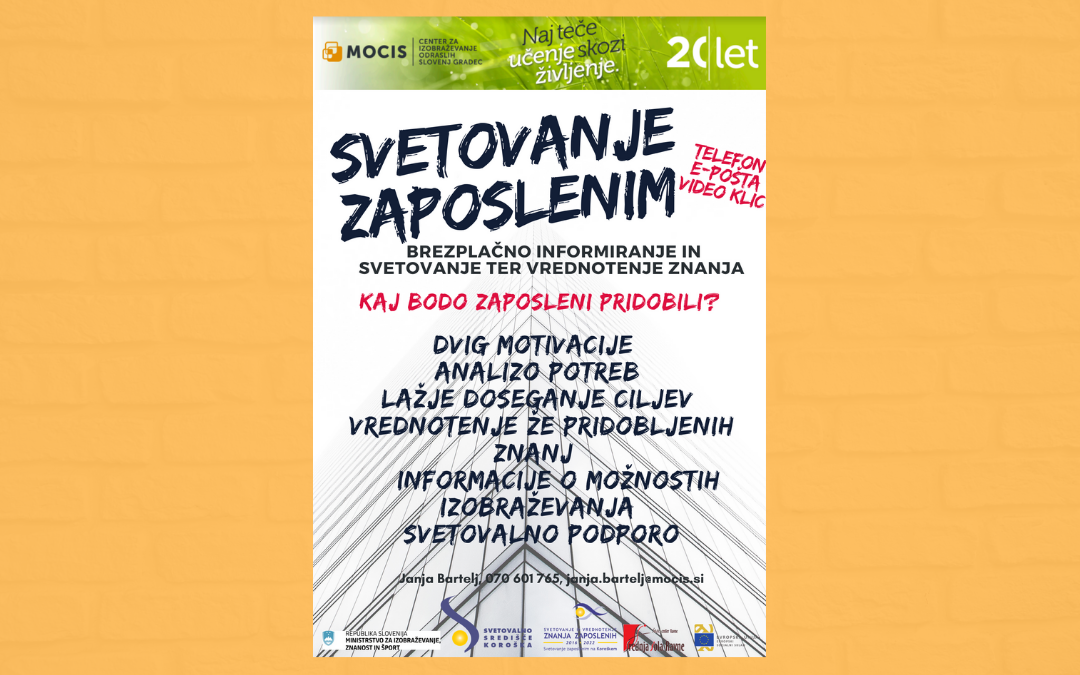At MOCIS (Slovenj Gradec AEC) and the Andeški hram Multigenerational Centre, we took on the challenge of how to engage learners so that they would start learning in a different way. Throughout the process, both lecturers and learners gained a lot.
We maintained contact with associates and learners remotely. We had the advantage of the already provided online classrooms for formal education which were a source of experience that we could build upon. We successfully transposed the numerous programmes to the online environment (elementary school for adults, secondary school programmes, computer courses, foreign language courses, Slovenian for immigrants, PLYA, the Slovenian Third Age University, activities of the multigenerational centre and the IGAE).
The learners of the Slovenian Third Age University received a link to the “Padlet” common online bulletin board. This is a simple online tool that allows working together remotely. It provided access to videos, virtual assignments, instructive games, quizzes and similar content that facilitated the learning of the English language in a fun and relaxing way. We created the Andeški hram Multigenerational Centre channel on Youtube where we published videos and other interesting materials.
The work proceeded remotely so certain groups were joined by learners from other municipalities. There are therefore no borders online. Any eventual problems can be bridged together and most of us find out in the end just how many advantages this way of work can bring us. The only thing that truly matters is the will to learn a foreign language and we can then find a way to reach one another in the end.
At the Koroška Guidance Centre, we first prepared an extensive promotional campaign to assess and evaluate the knowledge of foreign languages. Testing proceeded via the telephone, e-mail and video conferences. We conducted it in two parts – the written part (electronic questionnaire) and the oral part (video conference). After the evaluation, we issued a certificate to the learners which featured the description of their respective knowledge of the language, we ranked them on the CEFR European language scale and issued recommendations for improving their knowledge. No prior registration was required as they only needed to express their interest over the telephone or via e-mail, after which we provided them with guidance on how to proceed.
In order to attract new clients for the ESF Guidance for Employees, we prepared an ad and sent a letter to employers. There was sadly no response, which was to be expected considering the economic situation and conditions.
Guidance for the learners enrolled in formal programmes took place during the education process. This mostly involved the combination of telephone and e-mail correspondence. There was no in person guidance during this period. The counsellors prompted more than half of the guidance sessions. The clients occasionally required support for their work in online classrooms, but managed on their own for the most part. We also did not suspend the preparations for the Matura exams during this period, but rather intensified them even more. We kept in daily contact with the candidates, monitored their work and encouraged them to take further steps towards their goal.
This was a new experience for all of us, but we can now say with absolute certainty that we (adult educators) have gained new knowledge and precious experience with working remotely – both with our associates and the learners and clients. We mainly learned that we are adaptable, able to internalise the change and master new knowledge. Change is the new norm which adds even more meaning to the following slogan of MOCIS: “May learning flow through life.”
Janja Bartelj (janja.bartelj@mocis.si), MOCIS



